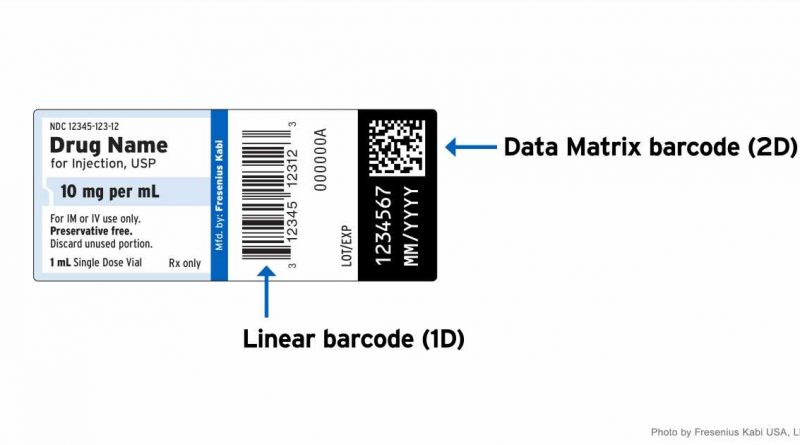More crucial data needed on every pharmaceutical product label

When nearly 20 years ago, the Food and Drug Administration (FDA) issued a new rule1 that pharmaceutical manufacturers must include a linear bar code on all immediate drug packages that included each medication’s National Drug Code (NDC), many in the healthcare industry rejoiced. The addition of this code helped facilitate the medication administration process, said Kevin Marvin, RPh, ASHP Senior Consultant and independent healthcare informatics consultant supporting the safe use of technology in health systems nationwide.
“Initially, nurses would scan the barcodes to verify that they were giving the correct medications to patients. Then it expanded into pharmacy, where robotic systems could use the barcodes for stock, pick and verification functions – all which made things a lot more efficient,” he explained. “But those linear barcodes lacked lot numbers and expiration dates – limiting what some of these more automated systems could do unless someone was going to add that information manually.”
“Having to input that data manually not only increases demands on busy pharmacists’ time,” said Mark Neuenschwander, founding director at the THRIV Coalition for IV Accuracy, “it also increases the probability of human error.”
“In the early 1970s, bar-code point-of-sale researchers at IBM conducted observational studies to determine cashier data-entry rates. I remember those pioneers telling me that for every 100 keystrokes, about 10 were wrong—and that was just with numbers.” Neuenschwander added, “Today, think about all the online forms that require double entry of a password and how often we see that ‘Passwords must match’ message appear. Potential for error only increases when entering more complex alpha-numeric sequences.
While traditional linear bar codes don’t have room to add crucial drug information like lot number and expiration date, two-dimensional barcodes do. Recently, Fresenius Kabi announced that, moving forward, it would add data matrix barcodes (2D) to all its pharmaceutical products.2 The goal is to streamline workflows throughout the hospital, as well as to improve medication safety and enhance patient care. Marvin noted that this is a welcome advance – and one that can address issues created by manual data entry.
“If you consider a good workflow for a computer system to be one where you can reduce the number of manual keystrokes, as well as the amount of time pharmacists need to input information, the data matrix barcodes offer a big advantage,” he said. “I was recently observing an IV preparation area at a hospital using the 2D barcode symbology and I saw that it was possible for the pharmacists to do their work without even touching a keyboard.”
The digitization of such crucial information is something that the industry will greatly benefit from, according to Neuenschwander. Additionally, he hopes that other pharmaceutical manufacturers will soon follow Fresenius Kabi’s lead by adding data matrix codes to their products, too.
“Many manufacturers may not do this until they are told by the regulatory bodies that they must – and that’s just the way it is,” he added. “The absence of lot number and expiration data in barcodes on all immediate drug packages is a gap that must be filled. I applaud Fresenius Kabi for leading the way. I hope the rest of the drug industry will follow. It’s the right thing to do.”
To learn more about Data Matrix Barcodes at the Unit of Use, visit https://www.fresenius-kabi.com/us/products/data-matrix-barcodes
References
3499-CORP-08-11/22
About Fresenius Kabi
Fresenius Kabi is a global health care company that specializes in lifesaving medicines and technologies for infusion, transfusion and clinical nutrition. Our products and services are used to help care for critically and chronically ill patients. The people of Fresenius Kabi are driven by a common purpose: to put lifesaving medicines and technologies in the hands of people who care for patients, and to find answers to the challenges they face. Fresenius Kabi employs more than 40,000 people worldwide.
Source: Read Full Article



